Tech Support
Meet the core members of Intertech Ireland, a group that was formed to connect LGBT+ people within our enormous tech workforce, which also reaches out to educate and empower the wider queer community. Photos by Babs Daly.
“I’ve worked for Amazon for almost two years. Amazon is in a hyper-growth state, and we have grown to more than 2,500 people in Ireland. Glamazon, the LGBT group in the States is really well set up, but over here it’s still in its infancy.
There’s a lot of senior leadership to support diversity at Amazon. Every Pride, Glamazon participates in the parade, and a there’s a Pride breakfast that includes allies and families. There’s face-painting and food, and it’s very heartening to see LGBTs and their families, and a lot of straight allies there.
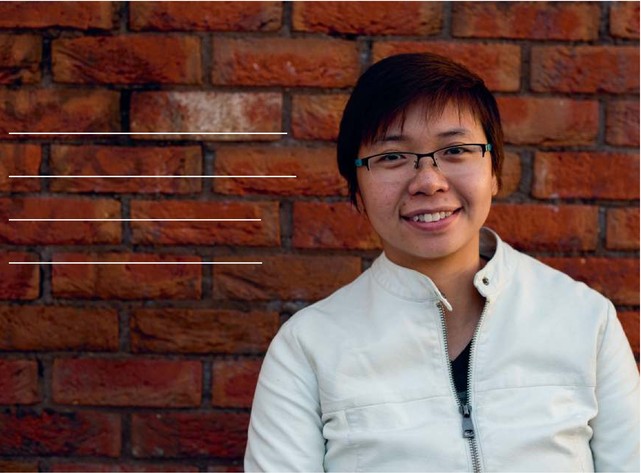
EMMELINE TANG
“What Intertech does with the professional community really resonated with me.
I was very active in the LGBT+ community in London before I came to Dublin, so after finding my feet here, that was at the top of my priority list. What Intertech does with the professional community really resonated with me, how well attended it is and the fact that it’s a strong support network, so I contacted them and said I wanted to get involved.
One thing that Intertech is keen on doing is women’s engagement. It’s very hard to get traction from the LBT part of the equation, so we said let’s look at events that might cater to women – what can we do to get women more interested in coming together in the community and doing more? We did an event last year called The Night of the Wonder Women, which was successful, and we’re going to do a second version of that event soon.”
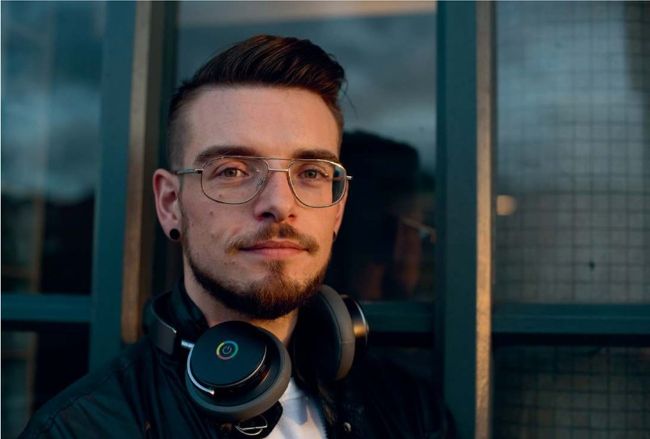
DANIEL TÓTH
“If you navigate both the corporate and activist landscapes, you can really make something special happen.
“I’ve been at Google for almost four years. I got involved in its LGBT+ network one year in because the marriage referendum was coming up. We had the idea of doing a video saying we support marriage equality, so we brainstormed, got a production company on board and hired a bunch of volunteers in Google. The video we made went up on Google.ie for two days and gathered 20k views.
Before that I was always aware of pink-washing, how things might get diluted in a corporate environment, but that particular issue and time demonstrated to me that if you do things in the right way, if you navigate both the corporate and activist landscapes, then you can really make something special happen, especially if you have the support of an organisation like Google behind you.
There’s a very strong LGBT+ network in Google Ireland. There’s a small core of a steering committee, and a lot of supporters and allies, and we primarily organise events around Coming Out Day or Pride.
Intertech Ireland’s role is to connect and empower LGBT+ people within the tech community, to allow them to meet and further our cause. The idea is to connect this group of people to get a powerful message out, to make a difference from an education perspective, and from a community impact perspective.”
“I’ve been at LinkedIn for five and a half years now, and it’s an amazing place to work. LinkedIn not only believes that our culture should be inclusive, but the company believes in diversity, inclusion and belonging, so there’s a sense that you belong there for however long you work for the company. It’s called our DIBs initiative.
I was one of the co-founders of Out@In, which is our internal LGBT+ employee resource group. We have provided training in how to deal with potential issues, like when a colleague comes out and how to deal with that. We went from very little policy and education to a very strong culture now of inclusiveness which became part of who we are as a company.
I’m one of the founding committee members of Intertech Ireland. When we started it, we didn’t know exactly what we wanted to do, we just knew that with all these corporations we represent, when you attach big brands like these to any initiative, it automatically drives attention. Companies like these have the money; they have the resources, the talent and the ways, basically exactly what you need to drive big initiatives like this.
We’re becoming better and better as we’re running events because we know what to do and how to do it, so the next event we’re going to do, POZ NEG is going to be our best one so far.”
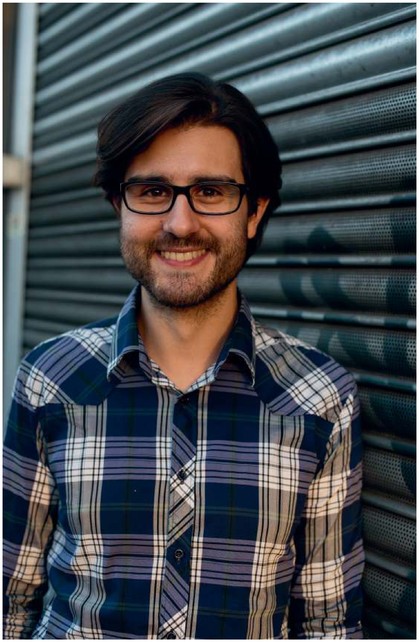
RICARDO MOZZINI
“When you attach big brands like these to any intiative, it automatically drives attention.
“I’m currently working for Google on YouTube’s policy team. I’ve been there for five years now. One of the unique things about Google and YouTube is that it’s open to not only observing the diversity spectrum that employees represent and hearing its feedback, but jumping right in and saying ‘what more can we do?’ I think Intertech is a really good example of how they do that, because they provide so much support in terms of finances, event space and labour for great events.
Our next event POZ NEG is going to be a panel discussion featuring Rory O’Neill, David Stuart and Tonie Walsh. It struck me as an idea a while ago because when I was 21, I dated a guy for about six weeks and then he told me he was HIV positive. In my foolish, ignorant, stigmatised, young self, I didn’t believe anything he told me about retroviral levels – that undetectable means untransmittable. I think a lot of people still hold that same ignorance and that’s why we wanted to provide a space for this discussion.
Intertech has three core goals. The first is to do social good, which we do through supporting Shout Out through fundraisers and tech support. The second is community development; these types of discussions like POZ NEG are how we’re trying to contribute something to the community. And finally we provide social networking space for people who are LGBT+ in tech. That goal is significant because from the outside looking in you might think tech is this haven where everybody is accepted for who they are, but that doesn’t negate the culture you come from. I’m Irish, I came into Google and didn’t know how to come out in the workplace. In the office we have people who are from even more conservative cultural backgrounds. The best thing that came about around InterTech for me personally was that Arthur Cox contacted us and said they’d been to some of our events and they wanted to set up their own LGBT+ group. They wanted some advice on how to do that. It’s great that we’ve had that impact on other businesses and workforces!”
“I’ve worked for Zalando for one year in Ireland and before that for two years in Berlin, where the company is based. In Berlin everything is kind of gay, so Zalando in Berlin is kind of a gay company. The office here in Ireland has only 100 people, and there are a few LGBT+ people, but because of the company we are, it’s a complete non-issue. The issues within our company are more to do with traditional sexism; women are still in the minority in the tech industry. Our company participates in LGBT+ diversity through Intertech, which I’ve just joined. I was doing photography at their events in the past. I liked the events and wanted to be part of it.
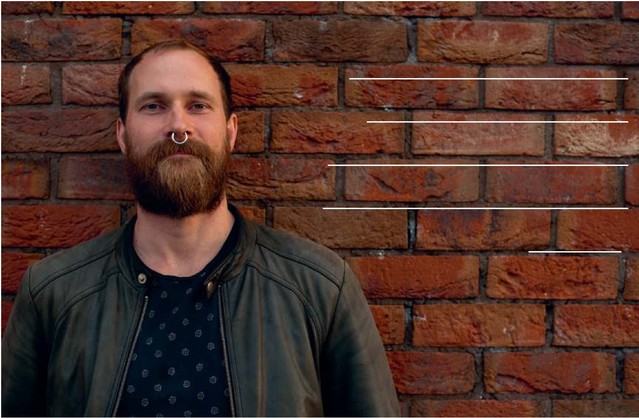
NICK BELL
“We’re discriminated against outside the community, but there is also discrimination within.
The last event I was at was called No Fats No Femmes, and it was about stigmatising and outright abuse on chat platforms. It was a frank discussion about how those platforms address the issues, and how they don’t. It highlighted discrimination within the community. There were about 350 people at the event, and generally those are the numbers that come. The events are not just for LGBT+ people in the tech community, but they’re open for anyone to come along.”
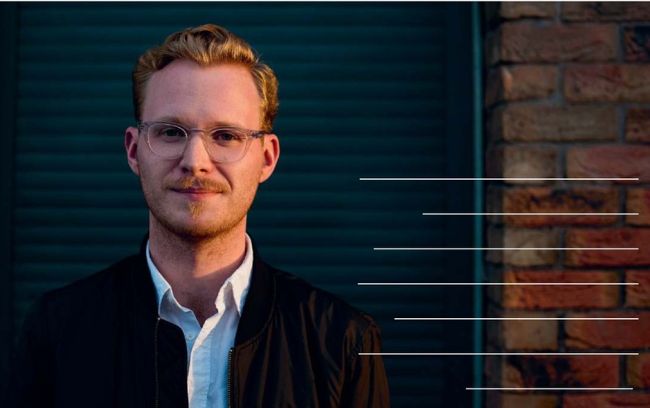
CONOR KAVANAGH
POZ NEG takes place on October 12 at 6.30pm at The Foundry, Google. Tickets are free at eventbrite.ie
“From the outside looking in you might think tech is this haven where everybody is accepted for who they are, but that doesn’t negate the culture you come from.